May 31, 2025 | 13:18 GMT +7
May 31, 2025 | 13:18 GMT +7
Hotline: 0913.378.918
May 31, 2025 | 13:18 GMT +7
Hotline: 0913.378.918
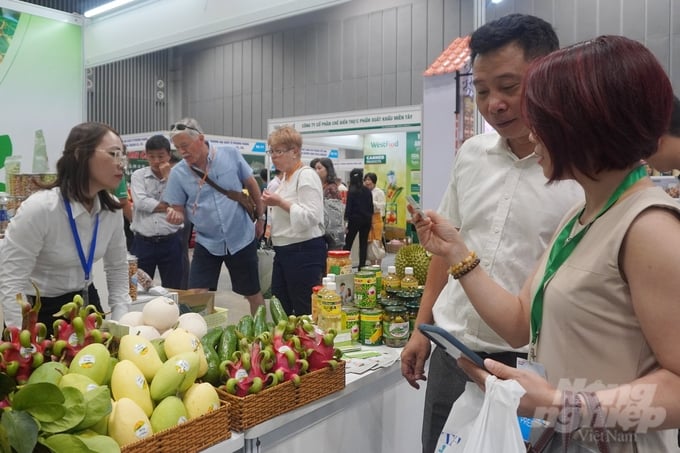
Vietnamese businesses are actively participating in trade promotion programs both domestically and internationally in order to connect with new customers. Photo: Nguyen Thuy.
According to Le Thanh Hoa, Deputy Director of the Department of Quality, Processing, and Market Development under the Ministry of Agriculture and Rural Development, Vietnam has been involved in the agricultural export market for approximately 30 years. Vietnam's total agricultural export value amounted to only 20 million USD in 1990. Subsequently, this figure has seen significant growth over the years, reaching approximately 53 billion USD in 2023. Notably, Vietnam's total agricultural export value reached 24 billion USD in the first five months of 2024, positioning the country as one of the world's leading agricultural exporters.
Among various agricultural segments, the fruit and vegetable industry has experienced remarkable growth over the past five years. From approximately 500 million USD in 2015-2016, the industry achieved a total export value of over 5 billion USD in 2023, with durians contributing over 2 billion USD.
As a transportation hub of the southern key economic region, Dong Nai province has attracted significant investment from both domestic and foreign businesses into warehouses and deep processing plants over the years. This advantage has facilitated commodity export, significantly boosting Dong Nai’s export turnover. Consequently, the province boasts one of the highest export turnover in the country for multiple years.
According to Dong Nai province's Statistics Office, the province's export turnover reached 21.6 billion USD in 2023, with a projected 8% increase in 2024. Namely, agricultural products with high export turnover include coffee, cashew nuts, and pepper. Additionally, Dong Nai features various other potential export agricultural products such as durian, dragon fruit, leafy vegetables, spices, pork, chicken, and duck.
Deputy Minister of Industry and Trade Phan Thi Thang remarked that despite the ongoing challenges, the agricultural sector has become the backbone of Vietnam's economy, complemented by high production capacity, a diverse range of products, and a substantial supply capacity for the global market. Moreover, Vietnam's agricultural sector benefits from the competitive advantages provided by its 16 Free Trade Agreements (FTAs) that cover several major markets worldwide. Notable agreements include CPTPP, EU, and ASEAN.
“Vietnam is currently the world's second-largest supplier of coffee, the largest for cashew nuts and pepper, and the third largest for rice,” noted Deputy Minister Thang.
The export of agricultural products and foodstuffs has remained as a highlight in the economic landscape of Vietnam, showcasing exceptional growth amidst economic challenges and declining markets.
Vietnam maintained this growth momentum during the first five months of 2024, with the export turnover of agriculture, forestry, and fishery products estimated at 24.14 billion USD; marking an increase of 21% compared to the corresponding period in 2023.
Export value to major markets around the world has also experienced positive growth, including the United States with an increase of 23.9%, China with an increase of 8.6%, and Japan with an increase of 6.6%. The export value of various agricultural products has increased compared to the corresponding period in 2023, with coffee reaching 2.9 billion USD, marking an increase of 44.1%; rice at 2.65 billion USD marking an increase of 38.2%; fruits and vegetables at 2.59 billion USD marking an increase of 28.1%; and shrimp at 1.3 billion USD marking an increase of 7.5%.
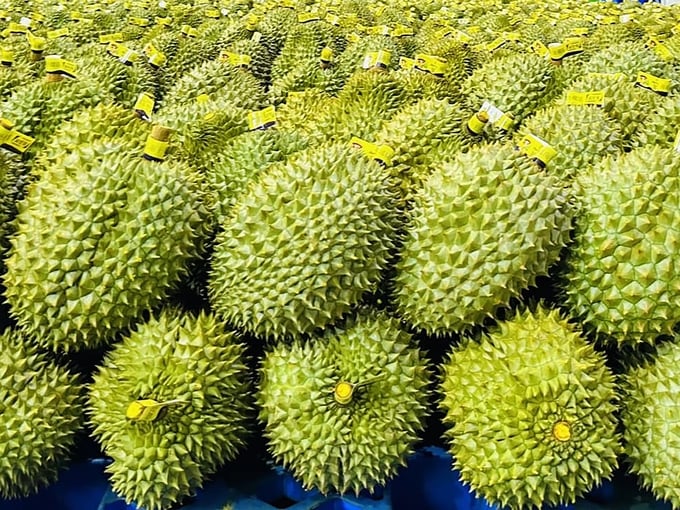
Vietnamese durian exhibited strong export growth in 2023. Photo: Nguyen Thuy.
According to Deputy Minister Thang, Vietnam's agricultural export sector will face three major challenges in the near future: The increasingly strict quality standards and origin requirements imposed by importing markets; the growing global trend of protectionism, which leads to the increased risk of frequent trade disputes against Vietnamese exports; and the inevitable trends of sustainable development, carbon emission reduction, and environmental protection across all of Vietnam's key export markets.
As a result, Vietnam has implemented numerous policies to support its agricultural sector, promoting a transition from an agricultural production mindset to an agricultural economy mindset. This initiative includes a focus on ecology, environment, human factors, sustainable development, and compliance with global market trends.
“The government and relevant ministries will continue to facilitate the development and application of science and technology in agriculture; attract investment in the food processing industry; enhance product quality; diversify product; and transition from developing agricultural supply chains to developing value chains,” emphasized Deputy Minister Thang.
In addition to the effective implementation of government projects, the Ministry of Industry and Trade, in collaboration with the Ministry of Agriculture and Rural Development, has focused on product promotion, trade promotion, and negotiating market access for various Vietnamese agricultural products. Vietnam has seen notable achievements in gaining access to various international markets, which include exporting passion fruit, durian, banana, and sweet potato to China; longan to Japan; grapefruit and lemon to New Zealand; and coconut to the United States.
Deputy Director Le Thanh Hoa believes that compliance with technical and quality standards, as well as disease control and risk assessment requirements is crucial to the sustainable export of Vietnamese agricultural products and foodstuffs, thereby affirming Vietnam’s export position on the global stage.
“Moving forward, agricultural development programs and the Ministry of Agriculture and Rural Development will support the government’s commitment to reducing greenhouse gas emissions and achieving NetZero by 2050,” remarked Deputy Director Hoa.
Translated by Nguyen Hai Long
/2025/05/30/5010-5-173638_943.jpg)
(VAN) On May 29, at the GO! My Tho Trading Center, the Tien Giang Department of Industry and Trade, in collaboration with Central Retail Corporation, held the opening ceremony of the 3rd Fruit Festival 2025.
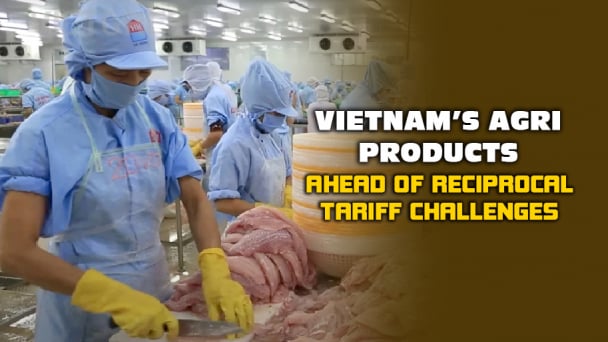
(VAN) Reciprocal tariffs are exerting pressure on U.S. exports, prompting Vietnamese firms to shift their focus to Muslim markets, Thailand, and Brazil.
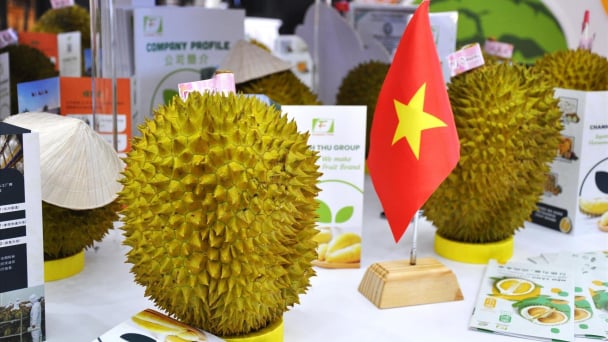
(VAN) A free booth for two years at Xinfadi, Beijing's largest wholesale market, will be allocated to Vietnam's agricultural products.
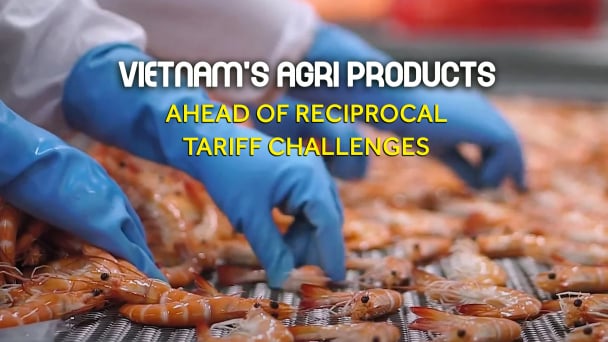
(VAN) Vietnamese shrimp exporters are actively looking for alternative markets and accelerating shipments to the United States in response to the pressure of impending reciprocal tariffs. This is occurring during a temporary tariff suspension.

(VAN) The import-export turnover between Vietnam and Singapore rose amid a trade rebound, with machinery, electrical equipment, and fuels making up the majority of the transaction value.

(VAN) Director General of the General Administration of Customs of China, Ms. Sun Mai Jun, has pledged to implement measures that will ease the import process for Vietnamese agricultural products.

(VAN) Although Vietnam is still increasing its coffee exports, the industry is currently in the process of determining market strategies in response to the U.S. imposition of reciprocal tariffs.